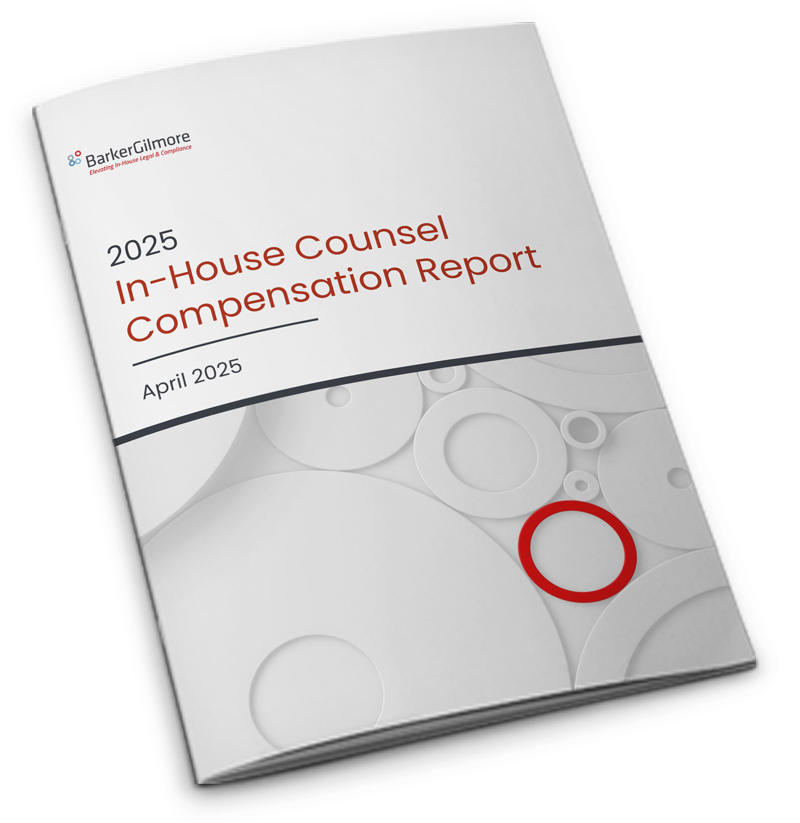As General Counsel, you might seek a new opportunity for a variety of reasons. Some may be personal, such as having to care for aging parents or wanting to move to a better school district. Or you may be dissatisfied with your current role, feeling underpaid, underappreciated, or unchallenged. Personal concerns such as these could motivate you to consider a new opportunity if one were presented to you.
On the other hand, sometimes you need to actively search for a new position. For example, a new CEO might join the company and want to bring on a preexisting senior management team. Or your company may undergo some type of structural transaction, such as a merger, that renders your position redundant. Even a successful GC could be under pressure to find a new job.
Read on for eight tips for GC seeking new opportunities.
1. Develop Objectives
Prepare a plan for the next opportunity. This requires taking the time to thoroughly think through and establish a set of professional objectives. Relevant considerations include the:
- Specific role desired
- Type of company
- Size of the company
- Specific industry
- Location of a company
- Compensation package
Focus on moving to the next opportunity rather than from the current one. It is critical to be patient and deliberate in order to find the perfect fit.
Possible obstacles to these objectives should also be considered. In the eyes of recruiters and potential employers, for example, experience in one industry may not translate to another. A GC might be pigeonholed into whichever industry they have been working in during the last five or so years. Focusing a job search on the current industry or adjacent ones can help overcome this challenge. If interested in a career move, consider getting experience in additional functions of the business to become more attractive to recruiters and CEOs.
Under virtually no circumstances should anyone quit a position unless and until a new job has been found. A currently employed GC is much more attractive to prospective employers and is better positioned to negotiate the terms of a new role, including a compensation package.
2. Create a Marketing Plan
To advance these goals, create a personal marketing plan. An effective marketing plan should include the following elements:
- Areas of expertise
- Specific business needs the GC can address
- Major accomplishments
- Relocation options that are acceptable
- Industries open for consideration
- Specific companies that are desirable
- A brief value proposition (e.g., a short, crystal-clear elevator pitch that explains why you’re in the market, what you’re looking for in a new role, and the unique value delivered to the business)
A good marketing plan will not only make a GC attractive to recruiters and prospective employers; it will also help the GC identify which opportunities may be worth pursuing.
3. Network, Network, Network
A new opportunity can come from virtually anywhere, but only if recruiters and prospective employers know who you are. Job boards are the least likely way to land a new position. Therefore, active networking is essential.
Think broadly about who may be in your network and create a list of those contacts. Unless there is a specific reason not to include someone, everyone who could be helpful should be on the list. Even secondary referrals can prove fruitful. Generally speaking, a good list will include:
- Current and former executives and business leaders
- Board members
- Search firms, recognizing GC executive searches are retained and exclusive
- Outside counsel
- Auditors
- Professional organizations
- Alumni
Although care must be taken if you don’t want your current employer to learn of a job search, proactively reaching out to connections on your networking list can uncover a gold mine of opportunities.
You should also seek to expand the list to create the chance of unexpected opportunities. Being active in the community, meeting new people for coffee, and getting involved with industry and professional organizations can give rise to introductions and new possibilities.
Additionally, sharing a list of target companies with the people in your network can enhance the chance of making connections and getting introductions.
Effective networking is a give-and-take. If you do not know a contact well, it is better to ask for tips rather than affirmatively soliciting aid in getting a new position. Always ask if there is a way to return the favor – either now or in the future – for the assistance provided.
4. Don’t Underestimate the Power of LinkedIn
LinkedIn is an essential resource for recruiters to find prospective candidates. A job-seeking candidate must therefore be visible on LinkedIn with a strong profile. The profile should not be a regurgitated resume. Instead, it should contain:
- A recent headshot
- At least five skills
- In the summary section, a description of what you do and the value that can be delivered to a prospective employer
- If in need of a job, you should use the “Open to Work” feature to alert recruiters of a motivated candidate
5. Have a Resume Ready
Always have a current resume in hand. This is your chief marketing piece. Skills and accomplishments should be highlighted, along with work experience.
The format should be traditional and easy to read. Don’t hire a graphic artist; recruiters and prospective employers review resumes quickly and are more likely to cast aside resumes designed to look “pretty,” which are typically challenging to read. First-person pronouns should be avoided. There should be no typographical errors. To ensure consistency and to check for correct grammar, consider having a friend or family member review.
6. Start the Process Early
Searching for the right role takes time. Typically, a search can take between six to twelve months or more. Be patient but intentional. Keep in mind:
- Due diligence is time well spent
- Carve out specific time devoted to the search (too much time can sap needed energy, and not enough can inhibit results)
- If a position is exciting, display interest
- Be authentic
If between jobs, enjoy the time away from work. The GC role is very demanding, even all-encompassing, and breaks between jobs are rare. The stress of the job search should not take away from the gift of free time. Reconnect with friends and family, work on your hobbies, and think about what you really want to do next.
7. Be Prepared for the Job Interview
Don’t go into an interview unprepared. Research the interviewer, the company, the industry, and the specific role. Be aware that employers are using video interviewing more frequently as part of the search process. Because most people do not excel at video interviewing, consider getting some coaching to go along with your rehearsing.
Anticipate the questions that might be asked and prepare authentic answers in advance. Our 18 Favorite In-House Counsel Interview Questions can be used to supplement your list of expected questions.
Keep in mind the following tips for the interview:
- Focus on eye contact and body language
- Keep answers to no longer than one to two minutes
- Let your personality come through
- Be prepared to share brief stories demonstrating ways you solved problems to the benefit of former employers
- Have questions ready to ask
- Engage in a conversation with the interviewer and try to make a connection
- Do not criticize your current or prior employer
8. Succeeding in a New Job
When negotiating a job offer, consider requesting executive coaching. Executive coaching can benefit the company by helping you transition smoothly and deliver results faster.
After landing the new job, begin planning the onboarding. A comprehensive, well-structured onboarding plan helps a new leader assimilate quickly with little to no disruption to senior management, the business, or the legal department. To learn more, see Creating an Effective Onboarding Plan for a Senior Legal Leader.
If you want to be on our radar for career advancement opportunities or learn how to accelerate your career with personal coaching, contact the experts at BarkerGilmore. Helping to build, develop, and retain in-house legal and compliance talent is our passion.
Connect with a legal recruiting advisor
* indicates required fields




